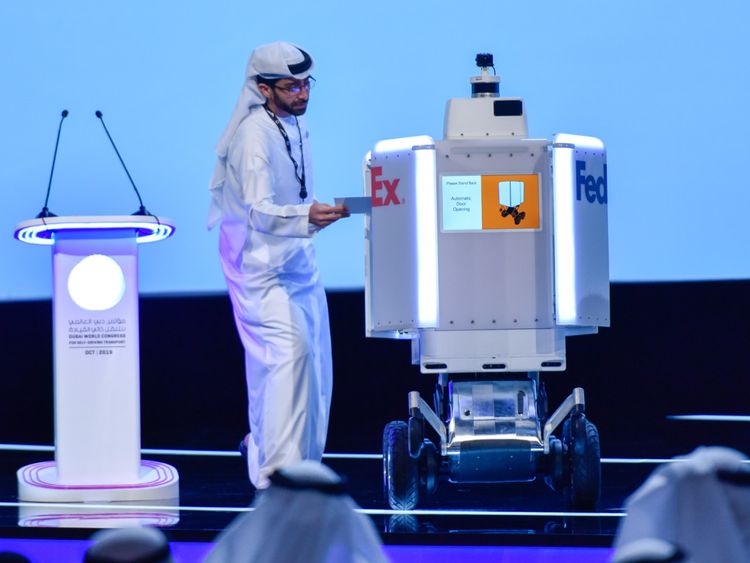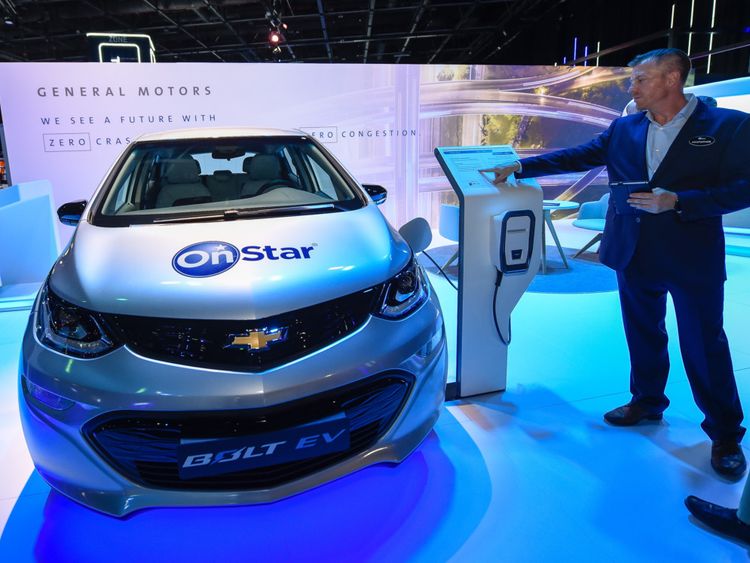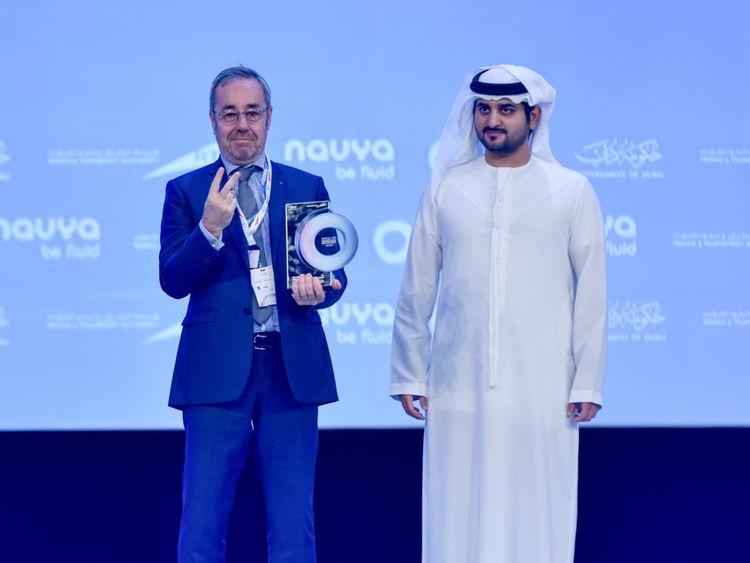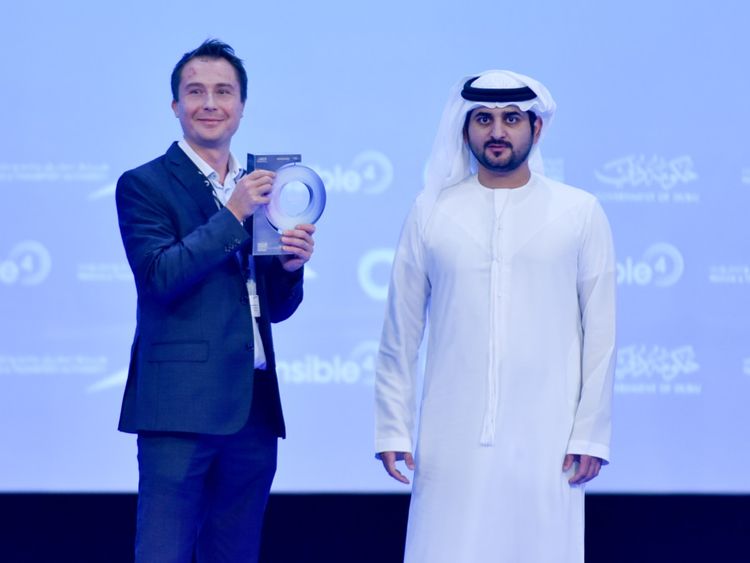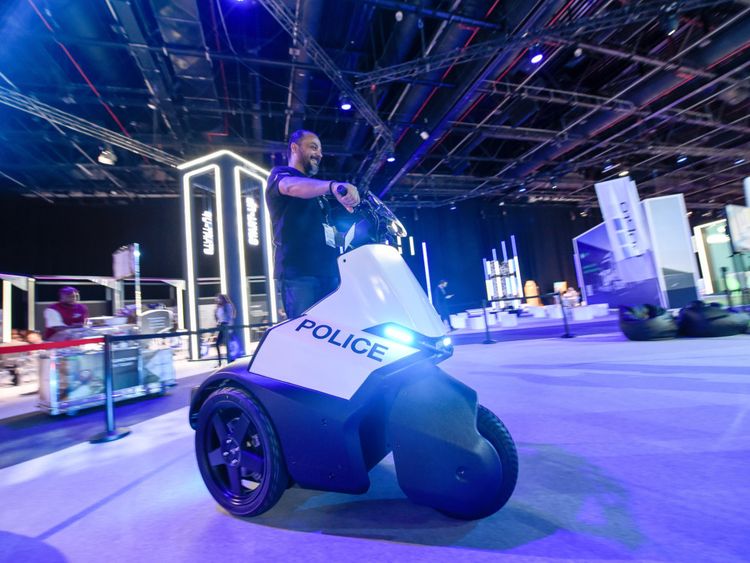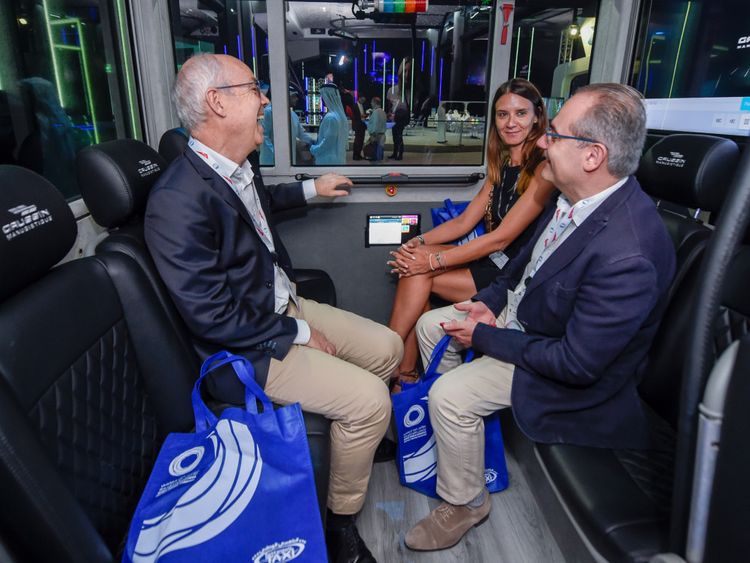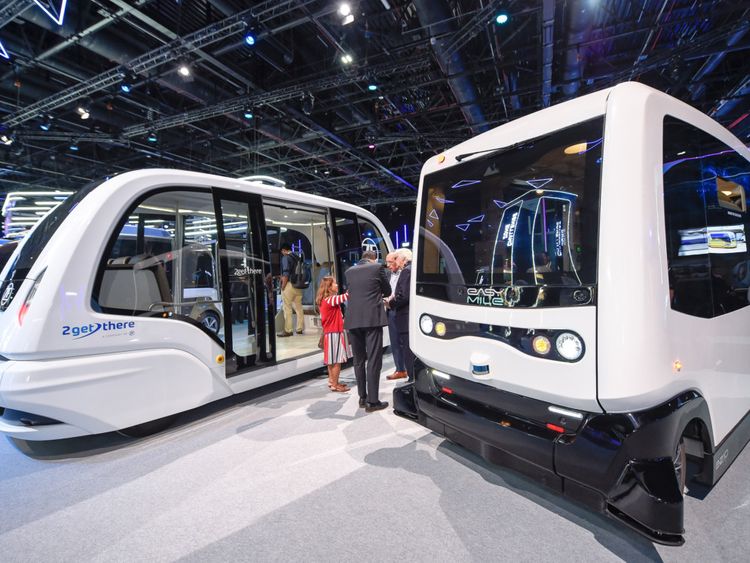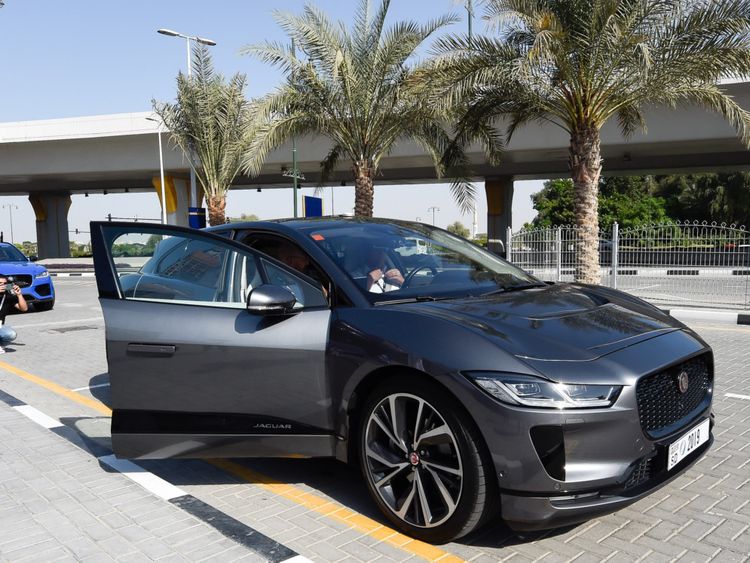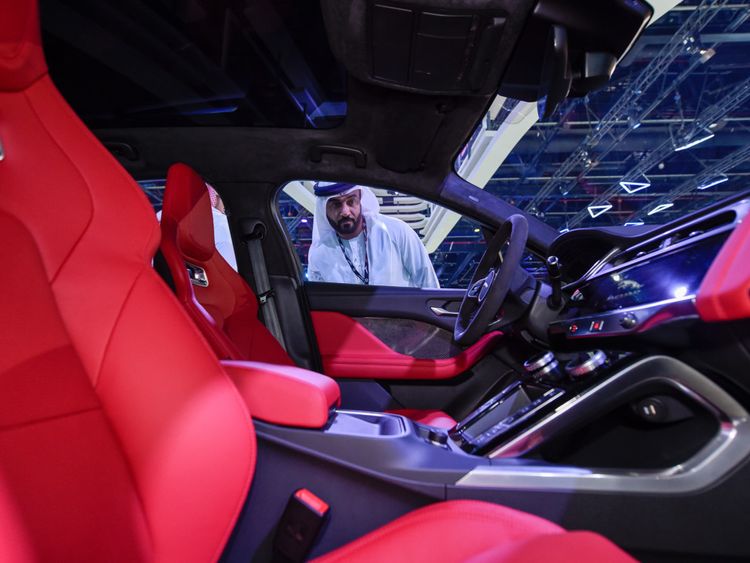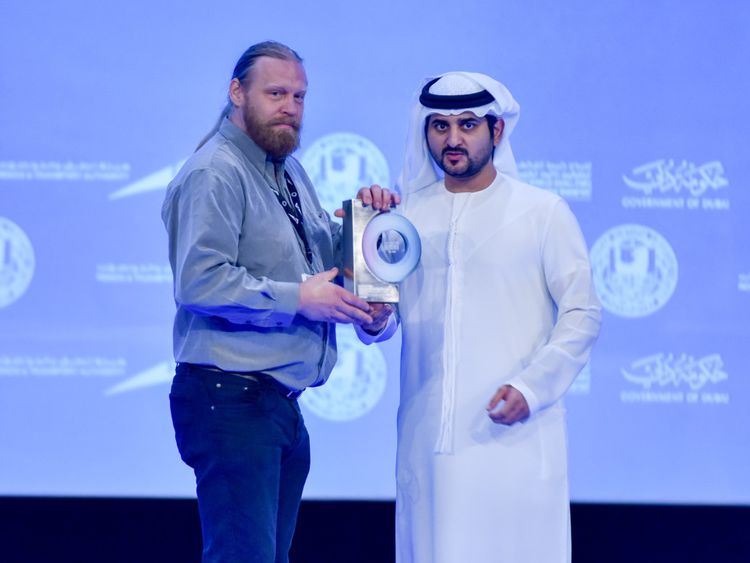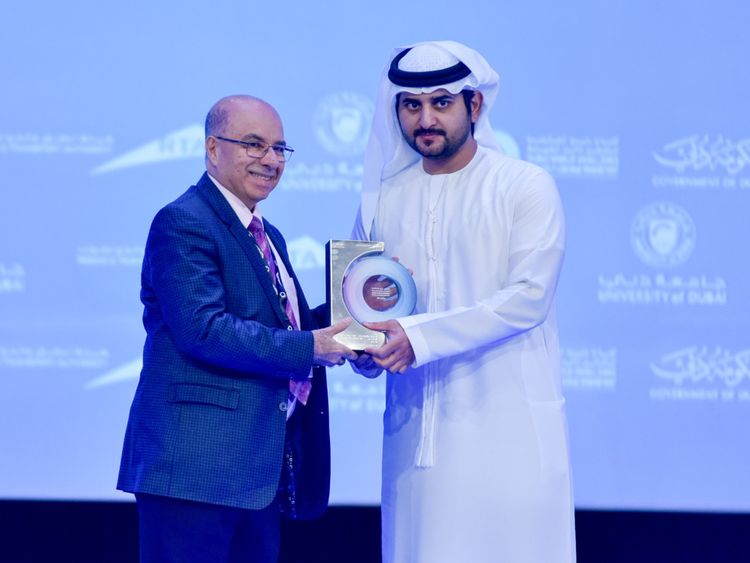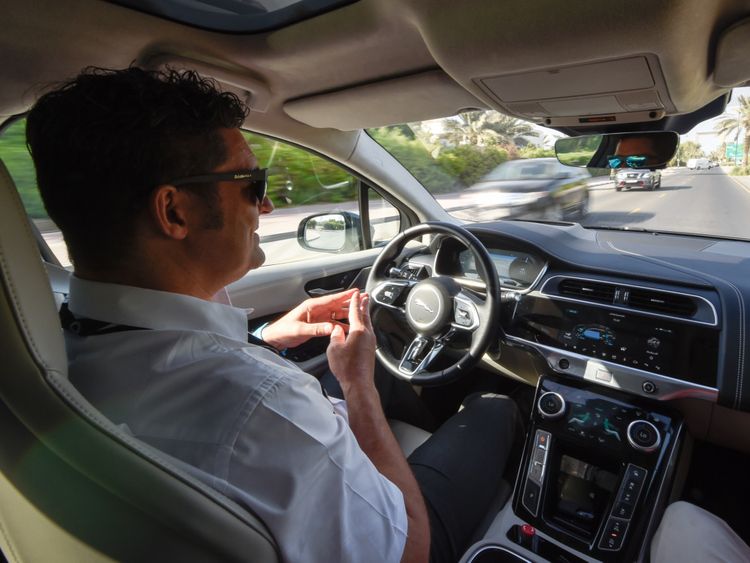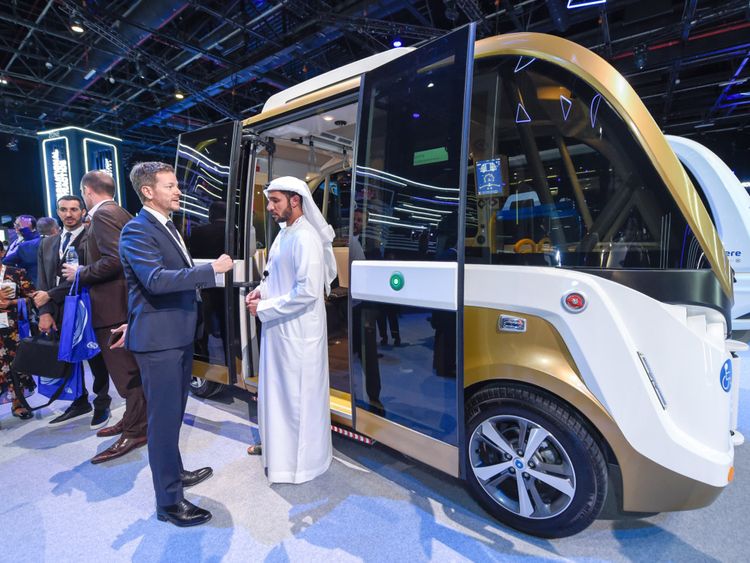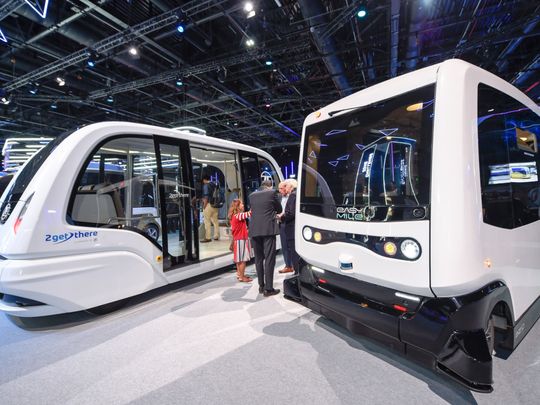
Dubai: Dubai is “not very far away” from becoming possibly the world’s first city to use driverless public transport, a senior Dubai official said on Wednesday.
Speaking on the sidelines of the ‘Dubai World Congress for Self-Driving Transport’, Ahmad Bahrozyan, CEO of Public Transport Agency of Roads and Transport Authority (RTA), told Gulf News Dubai is already trialing several transport modes, including a helicopter taxi.
The Congress was officially opened by Shaikh Maktoum Bin Mohammad Bin Rashid Al Maktoum, Deputy Ruler of Dubai. Shaikh Maktoum presented awards to the winners of the ‘Dubai World Challenge for Self-Driving Transport’, in the presence of Mattar Al Tayer, chairman of the board of executive directors and director-general of the RTA.
Initially, Dubai’s first driverless taxis or buses will have a “safety driver” on board as a precautionary measure until the technology is “100 per cent mature”, Bahrozyan said.
25 per cent trips to be driverless
The RTA has already tested driverless shuttle buses on pathways, where there were pedestrians and cyclists, and autonomous taxis on the road in traffic, he added.
Dubai aims to make 25 per cent of all trips through self-driving transport by 2030, the RTA has said earlier.
Flying taxi
On Tuesday, speaking about the flying pilotless taxi project, Bahrozyan said: “We continue to discuss heavily the deployment of a flying taxi service which we had announced when we did the trial a couple of years ago. We said that in five years Dubai will hopefully launch a service, so we are in discussion with many potential partners in this regard.”
He added that the trials are done “to look at the unique environment of Dubai, from a weather point of view, from an infrastructure point of view… the trials prove there is still some way to go before deployment”.
But the technology is improving, almost on a daily basis, and the RTA is “working very hard” with UAE legal authorities for the applicable legislation as well, in addition to cyber security for driverless transport, Bahrozyan said.
Public perception
A last concern to resolve is people’s perception of driverless transport. “You can have the most advanced technology but if people are worried about their safety”, they will not readily use self-driving vehicles, he added.
But driverless cars will be safer and more efficient than normal cars one day, Bahrozyan said, adding that human error accounts for over 90 per cent of accidents.
“I feel we are not very far away, but what’s more important than the timeline, is that we are ready as a city to be a leader in the world, so others can follow.”
Why go driverless?
His views were echoed by Sterling Anderson, co-founder and chief product officer of Aurora Innovation, who delivered the global keynote at the event. Anderson said not only do motorists account for 1.3 million road fatalities a year globally, cars are also “idle” 90 per cent of the time, taking up parking space that could instead be used for parks and other public benefits.
He added that the cameras, sensors, radars, Artificial Intelligence and software used by driverless cars are advancing rapidly, with around 100 cities having the supporting legislation and trials in place today.
‘Dubai at forefront’
“Dubai has been at forefront of this for the last several years… I can think of no better place as the laboratory for some of these projects than Dubai, which is ranked number one in the world for road infrastructure quality, nine in overall autonomous vehicle readiness by KPMG. It has one of the lowest road fatalities per 100,000 population in the world… and it has the largest driverless metro network,” Anderson said.
Winners of ‘Dubai World Challenge for Self-Driving Transport 2019’
French companies swept the prizes of Leading Companies, amounting to $3 million dollars. Gaussin won the Sustainability and Energy award. Navya won the Durability and Reliability award as well as the Customers Experience award.
In the Start-Ups category. The first $1million-prize went to Sensible 4 from Finland. The runner-up was iAuto from Taiwan and got $500,000. UAE-based Derq Company finished third.
Amongst the International Universities, the winner was Freie Berlin, Germany, which received $200,000. Carlos III de Madrid University was second, and won $100,000 thousand dollars. In the third place came the Australian University UTS.
In the Local Universities, Dubai University came first and won $200,000; UAE University came second as the recipient of $100,000; and Al Ain University was third.



